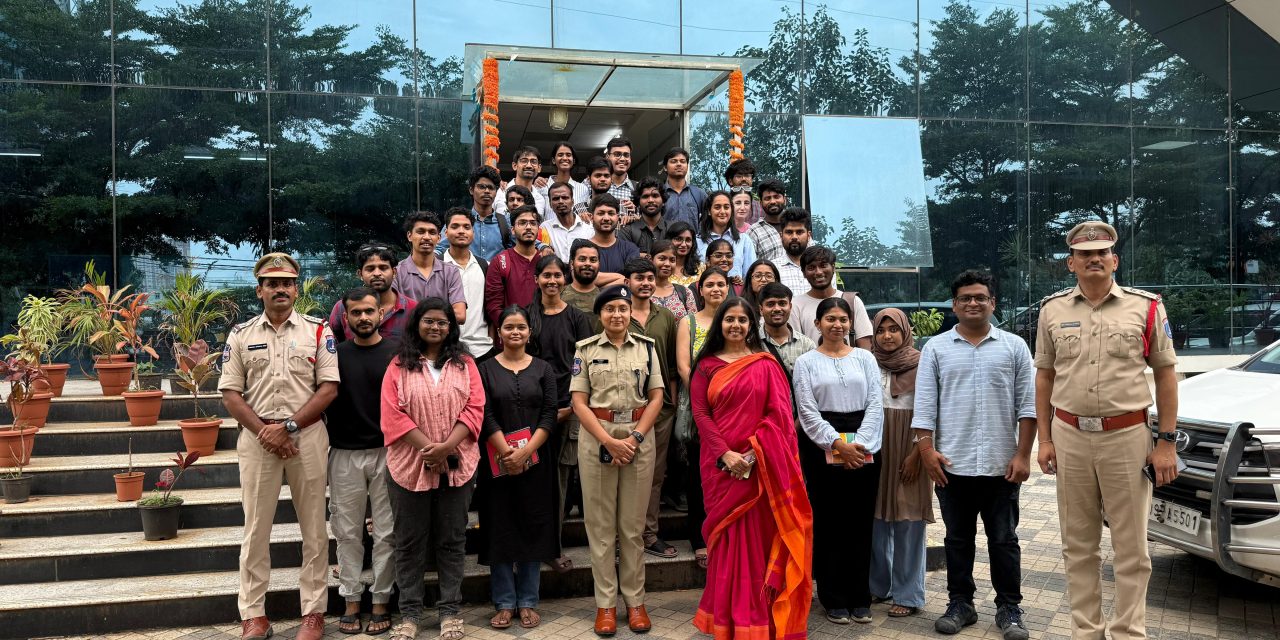A group of first-year MA students of Department of Communication visited the Gachibowli Police Station on Tuesday, November 4, 2025 as part of the ‘Introduction to Journalism Practice’ course. The visit was undertaken under the supervision and guidance of Assistant Professor Anjali Lal Gupta as the course instructor. Students received honest advice from senior police officials about media ethics and the duties of the press. They also registered their academic and journalistic spirit by asking some relevant and tough questions.
The visit began with an interactive session led by Ms. Ritiraj IPS, the Deputy Commissioner of Police (DCP) for the Madhapur Zone. DCP Ritiraj spoke to the aspiring journalists about the honour of the profession and warned them against inserting personal opinions into news reports.
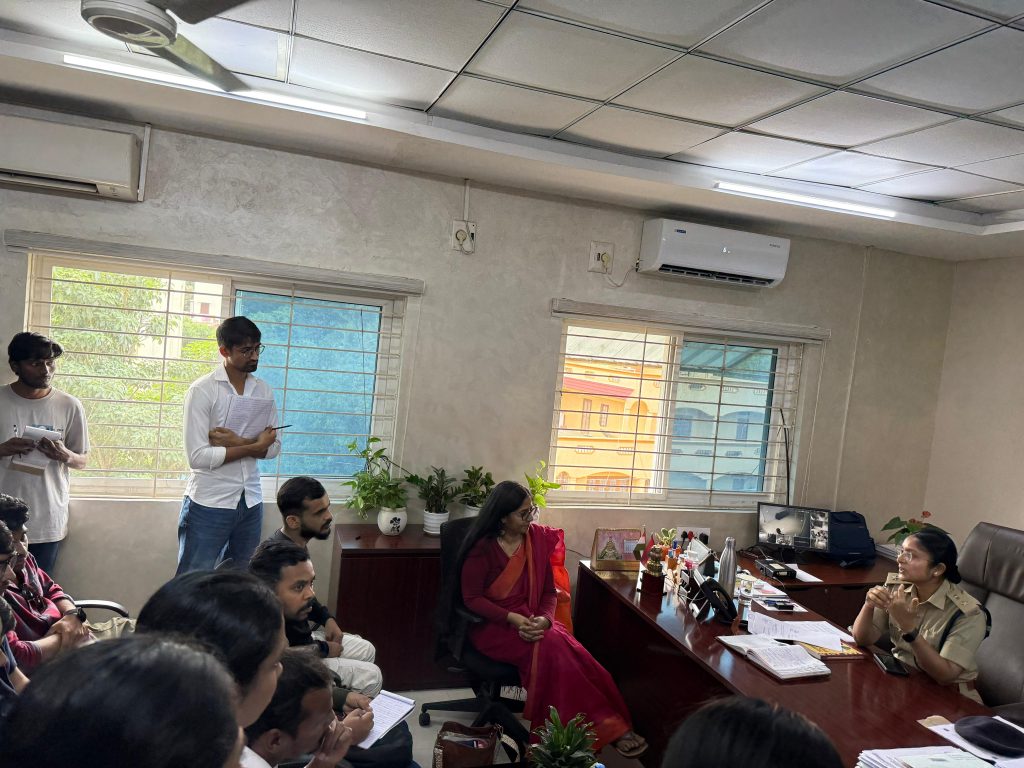
She highlighted the significant influence journalists have in shaping narratives and public discussions. She encouraged them to not only expose wrongdoing but also to follow up on stories to ensure justice is served.
Ramagiri Rahul, a student from the batch asked why the trust in police is drastically low and what the Police was doing to address that. DCP Ritiraj responded, “The Indian Police has been a colonial force which was majorly a tool of suppression and oppression against the native population. And, so, the 200 years of colonial mentality is still there and it’s been only 50 years since the change has started to usher in. And rotten eggs are everywhere.”
Another student, Sudheer Kumar Ojha, asked about the prevalent crimes under her jurisdiction in Madhapur. She explained that it is mostly cheating/trespass of private properties where people benefit from the old documentation practices of the Nizam era, while some also lack the knowledge regarding mutations to be done after purchasing property.
Press Conference Reveals Drug Bust
After the discussion with the DCP, the students got the rare opportunity to attend a press conference led by the Additional Deputy Commissioner of Police (Addl. DCP) N Uday Reddy. Officers from the Special Operations Team discussed recent arrests made under the Narcotics Drugs and Psychotropic Substances (NDPS) Act, targeting a network of drug dealers and users. The police also announced another arrest related to a chain-snatching case.
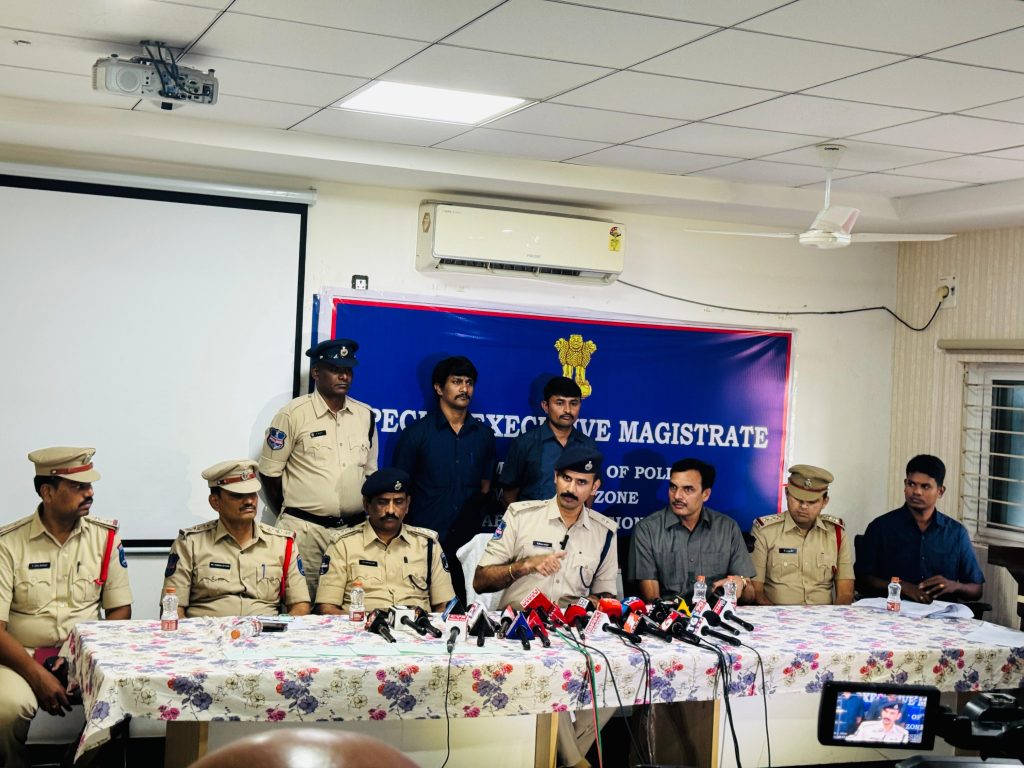
The press conference demonstrated the police’s openness in sharing information about arrests while also showing the careful balance needed in ongoing investigations. Officials did not reveal the names of two foreign drug suppliers traced to Bengaluru, citing operational needs to protect the investigation.
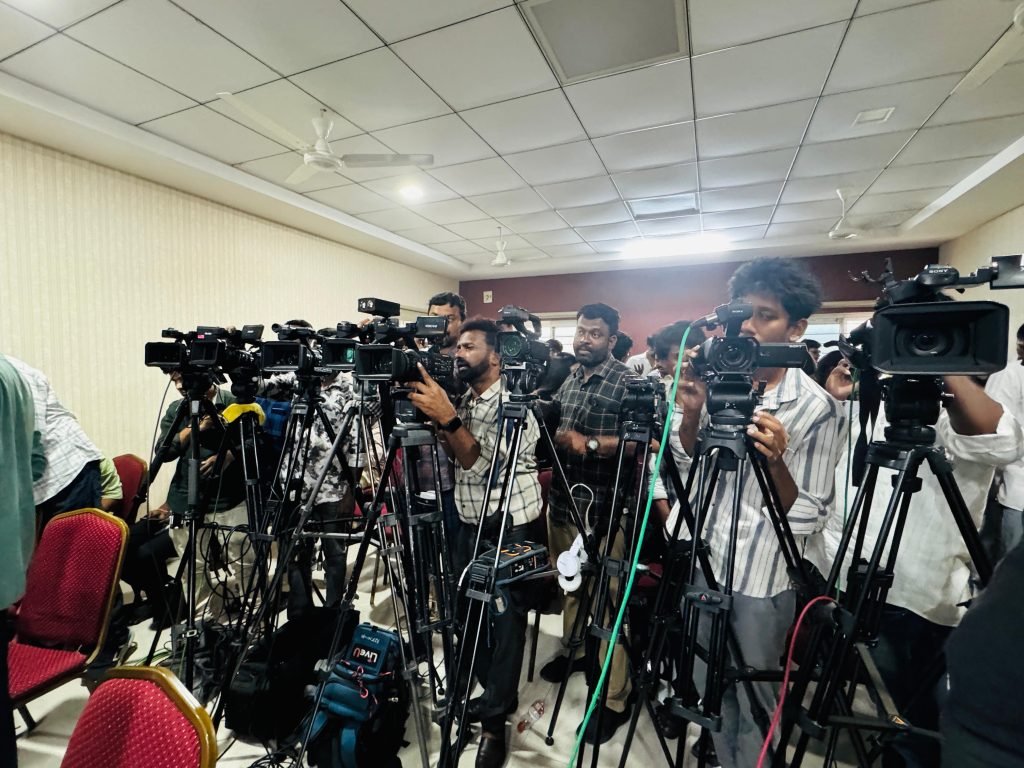
SHO Outlines Jurisdictional Crime Trends
The field visit further included a meeting with Mr. Md Habibuullah Khan, the Station House Officer (SHO) of Gachibowli. He gave the students an overview of how complaints are registered and investigations are conducted. In a private session with the students and their professor, Anjali Lal Gupta, SHO Habibuullah described the common types of crimes in the IT corridor, identifying theft, cheating, trespassing, chain-snatching, and road accidents as the most frequently-reported incidents.
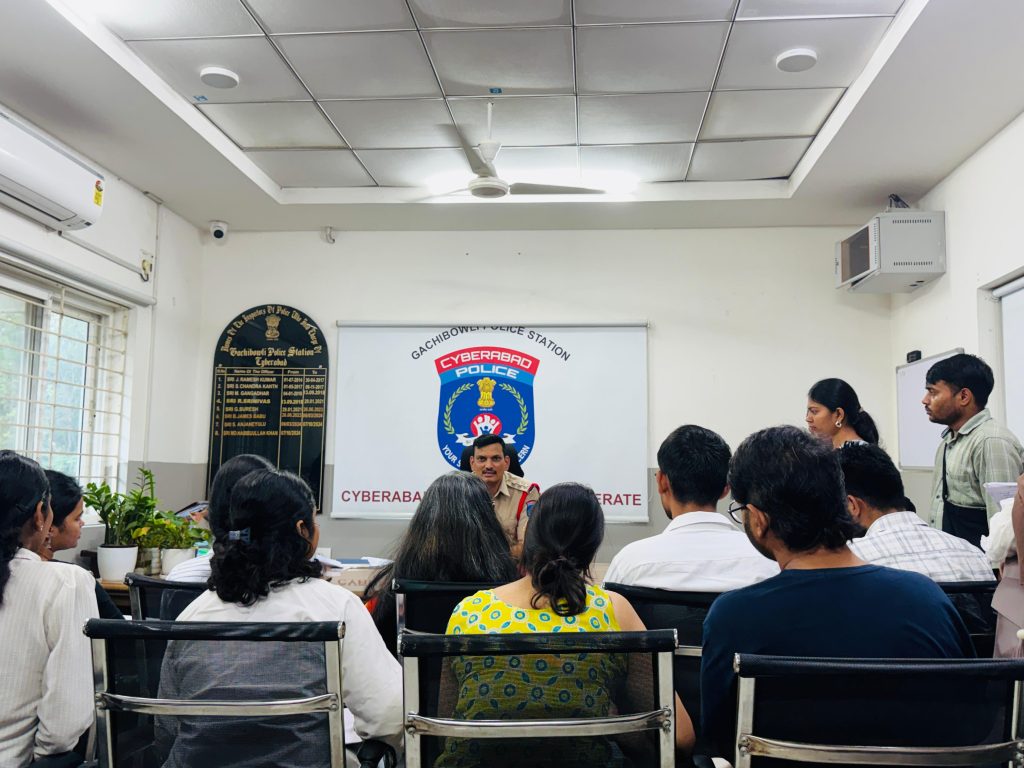
Ashok Kumar, a student, enquired about the practice of moral policing by the police to which Mr Habibuullah said that of course while patrolling around sensitive areas or crime-prone areas the police does try to caution people against possible acts of crimes by malcontents of society. On the question of women’s safety and security while frequenting pubs and clubs, the SHO responded that they cannot control youngsters’ outings in spite of the police cautioning them against possible crimes. He said that there is an “invitation of crime” angle that people ignore when they are out for night-time recreational activities. But they will “learn” only when they realize the consequences of their reckless deeds, he said. The SHO added that the police cannot be everywhere for patrolling.
The visit ended with an interactive session with the Women Police Station sub-inspector who explained the functioning of Women PS, which is dedicated to handling all the domestic violence cases. She explained how police provide counselling and legal help to those married women who are domestic abuse victims.
The visit provided future journalists with a practical view of the relationship between the police and the media, highlighting the vital need for accuracy, accountability, and ethical reporting.
- By Sudheer Kumar Ojha, student of the Department of Communication

